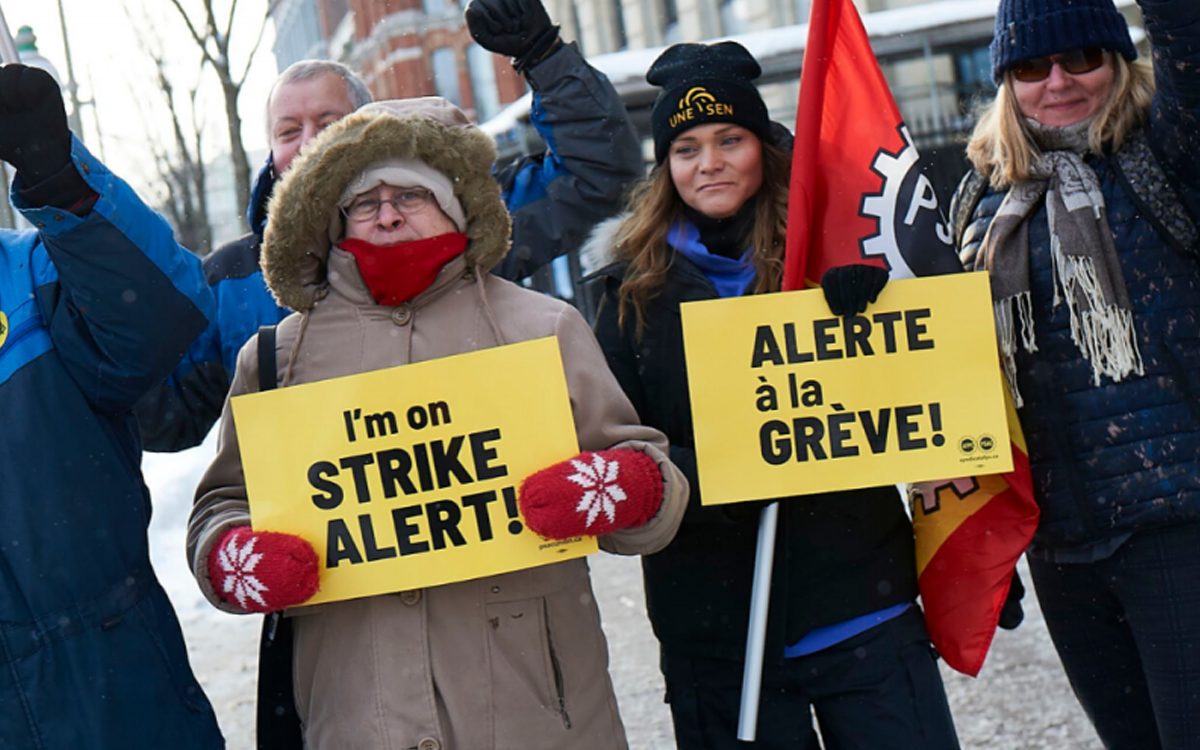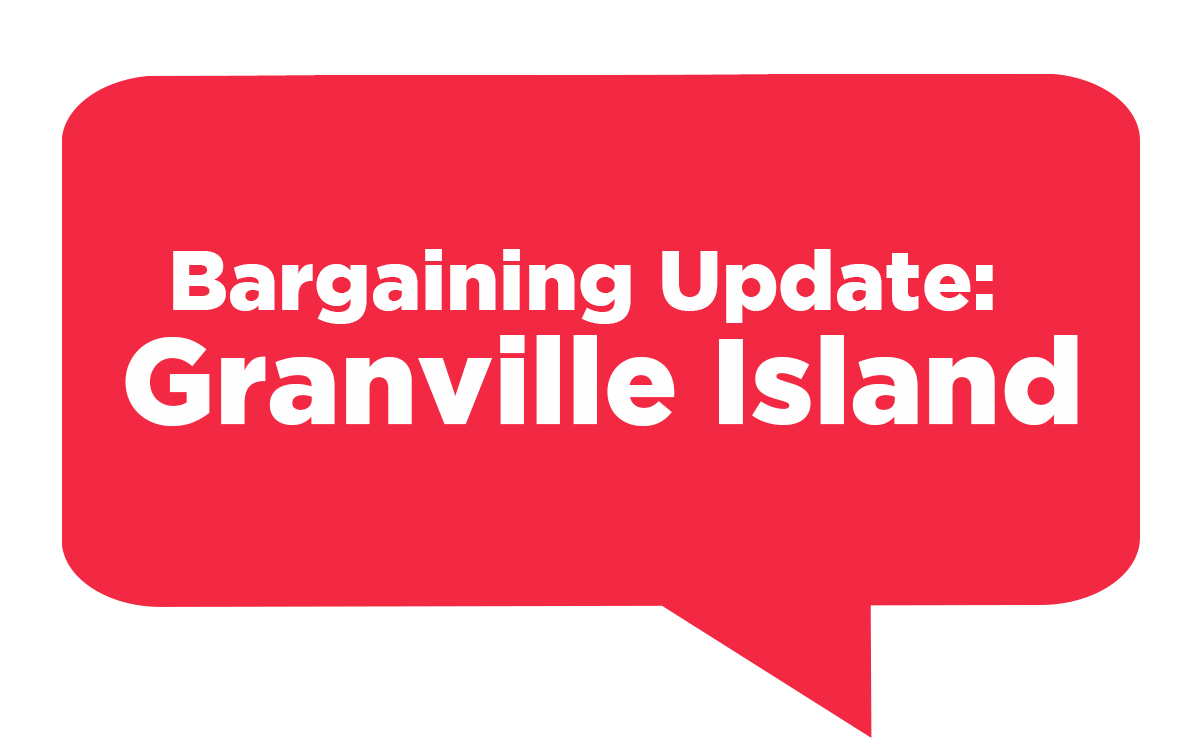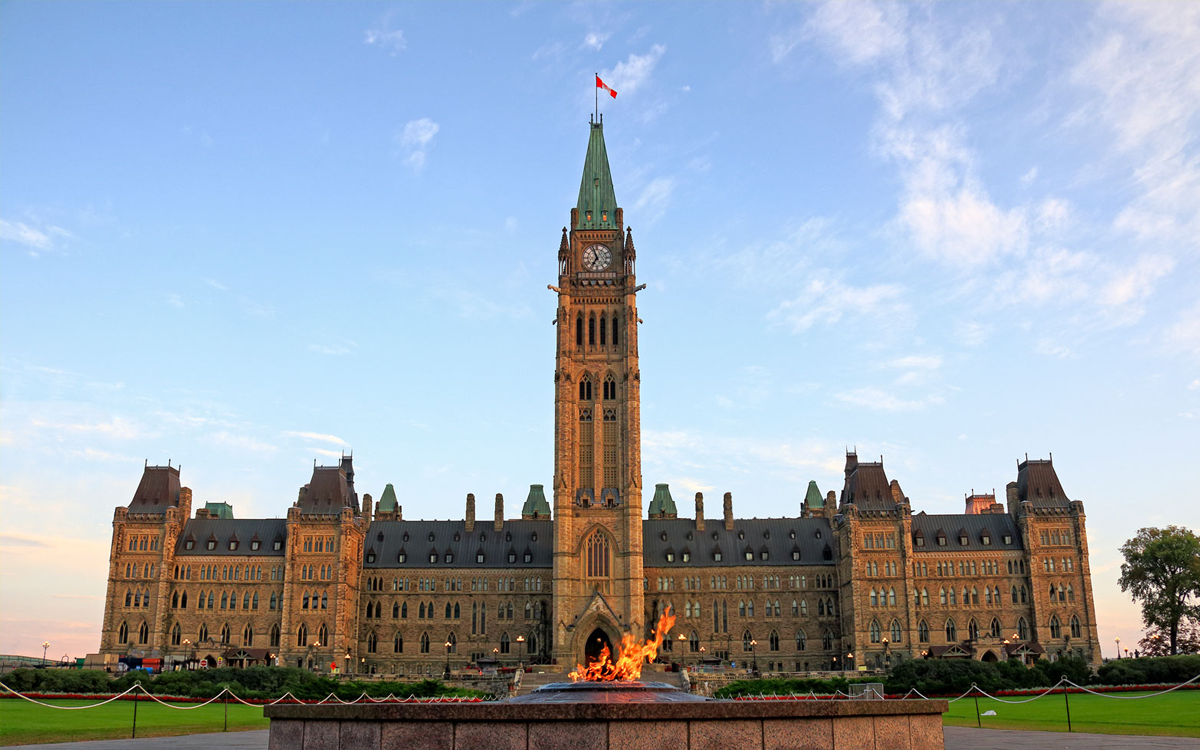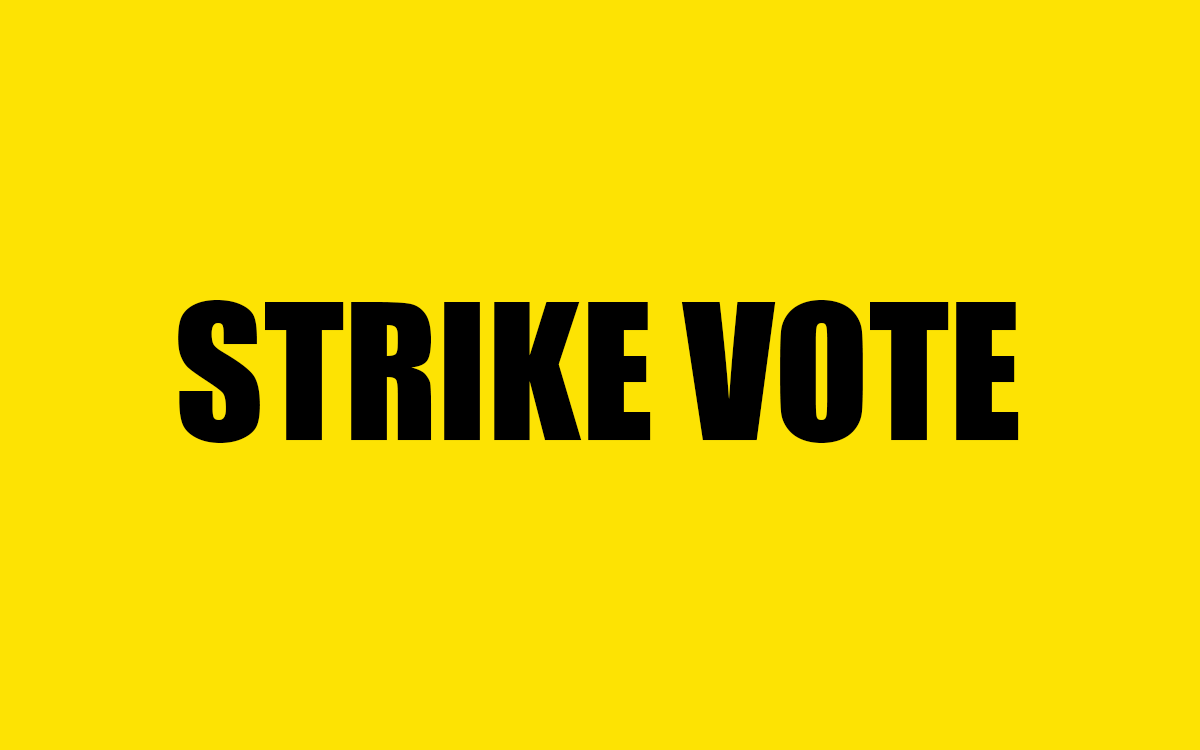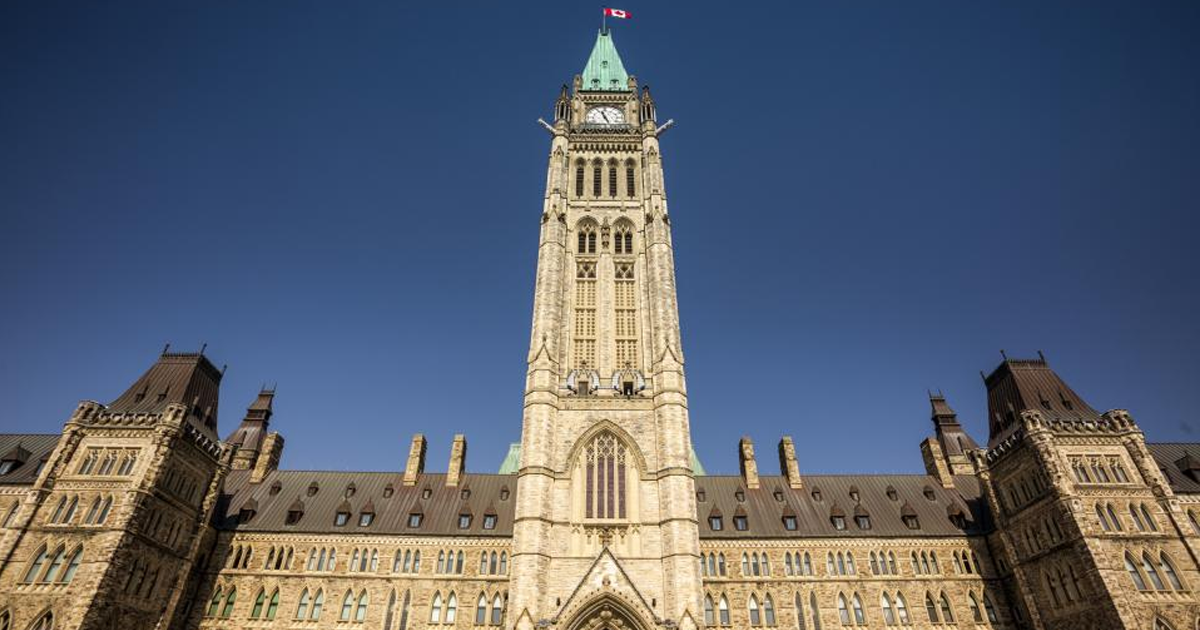
In addition to those in the federal public service, PSAC represents many workers in our universities, gaming sector, security industry, and at national airports. Many of these members are facing layoffs and fearing pay interruption due to the health crisis caused by the spread of COVID-19.
Federal and provincial governments have announced a range of measures to mitigate the impact of the pandemic on individuals and the economy. Many of these measures address short-term needs and are a direct response to the deficiencies in our support systems, however the governments’ actions are urgently needed and we welcome them. The following is a list of the measures announced (to date) designed to support workers.
Please note this page will be updated regularly as announcements of new measures are made.
Federal Government
New sickness and care benefit
An emergency care benefit of $450 per week for 14 weeks, regardless of your previous income, for anyone who is ill with the virus, in imposed quarantine or self-isolation, is caring for someone who is ill, or is unable to work in order to care for children due to school closures. The benefit also will be available to anyone who doesn’t qualify for or was denied EI sickness benefits. Payments are estimated to begin start sometime in April.
For anyone who qualifies for EI sickness benefits, the one-week waiting period has been waived and no doctor’s notes are required.
Emergency benefit for unemployed workers
The government will be making $5 billion available to support unemployed workers who do not qualify for Employment Insurance. Few details are available at this time other than it is expected to be available in April and will be handled through the Canada Revenue Agency.
Canada student loan payments deferred
Anyone repaying government student loans will not have to make any payments for six months, interest-free. This does not apply to private bank student loans.
Help for vulnerable communities
$350 million has been committed to a new Indigenous community support fund to address immediate needs in their communities.
Up to $50 million for women’s shelters and sexual assault centres, including those in Indigenous communities, to prevent women from feeling forced to stay at home in abusive relationships.
$157.5 million is earmarked to support people experiencing homelessness.
New deadline for tax filing and payment
The deadline for filing taxes has been pushed to June 1. And anyone with income tax payments due between now and September 2020, has until August 31, 2020 to submit their payment.
Special GST credit and enhanced Canada Child Benefit payments
The government has committed to introduce a one-time emergency GST credit for low- and modest-income families: a maximum of $300 per adult and $150 per child, expected in early May.
In addition, those who receive the Canada Child Benefit will see the maximum payment amount increase by $300 per child for the May payment only.
The value of both these benefits falls as income increases.
Supports for business
The government’s economic package also includes supplements for small businesses to help keep workers employed. Corporations are being allowed to temporarily hold onto $55 billion in consumer taxes and income tax deducted from pay cheques until September 2019.
We encourage everyone to keep yourself and workers safe. Apply for EI and other benefits online.
For more information on these measures and others, visit the federal government’s COVID-19 Economic Response Plan.
Provincial Governments
Alberta
Emergency isolation support is available to working adults who must self-isolate or who are the sole care-giver for a dependent in self-isolation. A one-time payment of $1,146 is available until the federal emergency payments begin in April.
Residents can defer electricity and natural gas bill payments for the next 90 days.
Full details of measures announced by the Alberta government can be found on the province’s COVID-19 information web page.
British Columbia
The B.C. Emergency Benefit for Workers will provide a tax-free $1,000 payment to British Columbians whose ability to work has been affected by the outbreak. The benefit will be a one-time payment for British Columbians who receive federal Employment Insurance (EI), or the new federal Emergency Care Benefit or Emergency Support Benefit as a result of COVID-19 impacts.
The government is increasing and expanding the B.C. Climate Action Tax Credit in July 2020. Eligible families of four will receive up to $564 and eligible individuals will receive up to $218 in an enhanced payment. This boosts the regular climate action tax credit payment of up to $112.50 per family of four and up to $43.50 per adult.
The government is waiving the Medical Services Plan (MSP) coverage wait period for people moving back to B.C. from COVID-19 impacted areas.
There is a ban on evictions for non-payment of rent in BC Housing-funded buildings. Individuals needing more time to pay bills can apply to payment deferral programs.
Child care providers who close due to COVID-19 will also receive support to help ensure they are able to pay their fixed costs, like rent/lease/mortgage during the temporary closure, so they can reopen when able.
Full details of measures announced by the British Columbia government can be found on the province’s COVID-19 information web page.
Manitoba
The Manitoba government is investing $27.6 million to help provide child care to essential front-line workers as they support the province’s COVID-19 response.
Full details of measures to be introduced by the Manitoba government can be found on the province’s COVID-19 information web page.
New Brunswick
The provincial government is working to minimize the financial impacts that child care facility closures are having on parents.
All licences, registrations, certificates and permits that were valid as of March 16, 2020, will remain valid until May 31, 2020.
Full details of measures to be introduced by the New Brunswick government can be found on the province’s COVID-19 information web page.
Newfoundland & Labrador
The provincial government will provide compensation to eligible private sector employers to ensure continuation of pay for employees having to self-isolate due to travel. Employees should retain documents regarding their travel (such as boarding passes) to facilitate reimbursement. Provincial public sector employees affected by this decision will continue to be paid as usual.
To ensure families do not have to pay child care fees and that early childhood educators can continue to be paid while centres are closed due to COVID-19, the government will provide funding to regulated child care centres and family child care homes at the child care subsidy program rates for all licensed spaces until April 30.
Full details of measures to be introduced by the Newfoundland and Labrador government can be found on the province’s COVID-19 information web page.
Northwest Territories
Workplaces who provide essential services but has an employee who chooses to self-identify as high risk for severe outcomes (age over 60, cardiovascular disease, chronic lung disease, diabetes, cancer, immune suppression), must put a plan in place to minimize exposure to COVID-19 for these individuals.
Nova Scotia
The government has invested $2.2 million so that every individual and family member on income assistance will receive an additional $50 to help pay for food, cleaning supplies and personal care items. People do not need to apply.
Tenants cannot be evicted if their income has been impacted by COVID-19 for the next 3 months.
Full details of measures to be introduced by the Nova Scotia government can be found on the province’s COVID-19 information web page.
Nunavut
$25,000 to the Hunter and Trapper Organization for community harvesting and to provide food for their communities.
The government will be providing funds to all licensed child care facilities equal to the parental fees facilities would normally collect during the announced three-week closure. This will allow licenced child care facilities to not charge parental fees for this period but still pay their staff as normal.
Full details of measures to be introduced by the Nunavut government can be found on the government’s homepage.
Ontario
The Ontario government has enacted the Employment Standards Amendment Act (Infectious Disease Emergencies) to provide job-protected leave to employees in isolation or quarantine, or those that need to be away due to child care.
Select child care centres will be allowed to open to ensure frontline staff can continue to work. Health care and other frontline workers, including doctors, nurses, paramedics, firefighters, police, and correctional officers, will be eligible to access local emergency child care. The list of emergency child centre locations will be available at ontario.ca/coronavirus.
Ontario is waiving the three-month waiting period for Ontario Health Insurance Plan (OHIP) coverage. Additionally, the province will cover the cost of COVID-19 services for uninsured people who do not meet the criteria for OHIP coverage.
For the next 45 days, the government will suspend time-of-use electricity rates and switch to an off-peak rate of 10.1 cents-per-kilowatt-hour. This reduced price will be available 24 hours per day, seven days a week and will be applied automatically to hydro bills. The Ontario Energy Board is banning disconnections until July 31st.
Driver licences, vehicle and carrier products, services and health cards will have their validity extended to reduce the need for in-person visits to government service offices.
$304 million in relief funding has been provided for hospitals, frontline workers, long-term care homes, retirement homes, residential facilities, and Indigenous communities.
Instead of the annual Budget, an economic and fiscal update will be released on March 25.
Full details of measures announced by the Ontario government can be found on the province’s COVID-19 information web page.
Prince Edward Island
The Emergency Relief Worker Assistance Program will provide $250 a week to employees who have seen a significant reduction in their work hours. Employers have to complete the application on behalf of workers.
$2 million has been set aside to support early learning centres and their staff, to maintain child care spaces and to ensure parents do not pay fees during the period of closures.
The PEI government announced a $25 million Emergency Contingency Fund. This new fund supports workers and small businesses affected by the pandemic. Additional details on the program have not yet been released. Read more: Financial Support for Islanders.
Quebec
The Temporary Aid for Workers Program offers financial assistance to workers who cannot work because they are in self-isolation for 14 days and are not eligible for another financial assistance program. An eligible worker will be given $573 per week for the 2-week period. If your health has not improved after 14 days, the coverage period for an eligible person could be extended to a maximum of 28 days.
Employers have been asked to implement flexible work schedules for employees to limit crowds in public transit during rush hour.
Full details of measures announced by the Quebec government can be found on the province’s COVID-19 information web page.
Saskatchewan
The Saskatchewan government introduced measures to ensure employees have access to job protected leaves during this public health emergency.
All crown utilities in Saskatchewan will implement bill-deferral programs allowing a zero-interest bill deferral for up to six months for Saskatchewan residents whose ability to make bill payments may be impacted by the COVID-19 restrictions.
Full details of measures announced by the Saskatchewan government can be found on the province’s COVID-19 information web page.
Yukon
The Yukon government has announced a stimulus package, which does not yet have a disclosed budget, will support workers, cancelled events, local businesses, and the tourism and cultural sectors.
For more information, please visit: http://psacunion.ca/psac-welcomes-government-measures-to-support-workers



